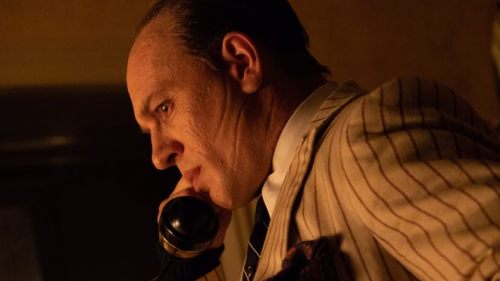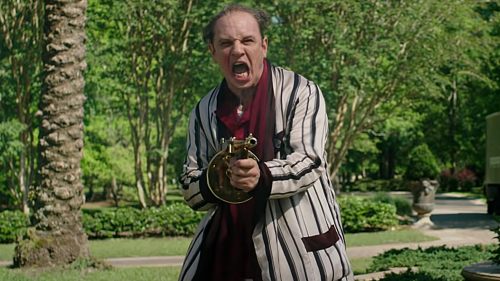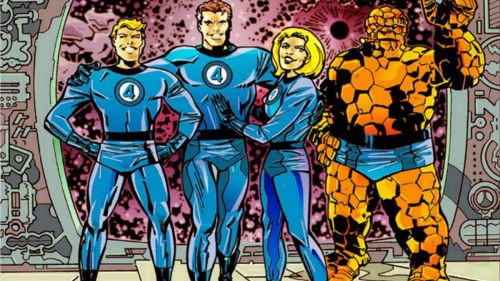The Last Word With FANTASTIC FOUR Director Josh Trank
Q: What is your earliest movie memory?
My earliest memory in life is movies. Simply. In a more literal way though, I have two memories. One is Empire Strikes Back, and the other is The Court Jester starring Danny Kaye. I can’t remember which came first, and I think I was three.
Q: What was the movie that made you understand that movies can be art?
A: Well, that’s a bit of a story in itself. My parents are both Los Angeles natives, and starting before I was born, my Dad would record everything that ever played on the Z Channel (which, for those who don’t know their L.A. movie history, was a pre-HBO, local movie channel, now long gone, that basically played everything that the Criterion Collection has in its catalogue today, but way more). Due to my Dad’s passionate movie fandom, we had a cabinet at home filled with probably over a hundred diligently labeled VHS cassettes, and each one contained between 3-4 movies (good old long-play). On the labels, my Dad had written each movie title, followed in parentheses by the year of the release and the last name of the director. So growing up, I had two main sources for home entertainment: Blockbuster Video and the movie cabinet. I frequented both, understanding that there were major, major differences between them. The movies from Blockbuster were easier to watch and understand. They were “fun.” And the movies in the cabinet were, usually, challenging and harder to understand what they were “about.” They also didn’t have cases with pictures and synopses to help pique my interest. Blockbuster did. And back then, there was no Wikipedia or IMDB to consult with for problems like that. So generally I had no idea what to expect from the cabinet, unless my Dad was around to ask.
But regardless, the movies from the cabinet were ultimately more appealing, because they were free. And they were ours. That was a big, big deal. Obviously this was decades before Netflix. When I was really young, I would spend all of my free time scanning the tapes and just picking out whatever title sounded the most like something from Blockbuster. If I saw names like Fellini or De Sica or Truffaut or Kobayashi, I would avoid those altogether because they sounded like they were probably “really hard.” But by the time I was thirteen, my curiosity about those oft skipped titles and names hit a boiling point and I just started watching them all. And I never turned back after that. Those movies filled me with a kind of happiness and raw stimulation no movie from Blockbuster could ever match. Even though many of those movies didn’t make immediate sense to me at that age, the voices behind them did, and I constantly re-watched them all, over and over, throughout my coming of age, until I understood what every movie in that cabinet was “about.” Those movies became the biggest part of my life and defined my feelings about the greater world before I was old enough to experience it on my own. Only “art” can have that kind of profound and permanent effect on someone. So to answer the question: There was never a single movie that made me understand that movies can be art. It was a cabinet full of movies. And the line was defined by that old, undebatable difference between this (Blockbuster) and that (the cabinet).
Today though, I believe all movies are art. Movies from Blockbuster and from the cabinet. I don’t differentiate the way I used to. I matured in my understanding of movies as a deeper and not so black-and-white form of expression. I stand behind the idea that the most interesting kind of “art” isn’t about the visible intent, it’s about the invisible intent. And as a filmmaker myself, now, I can say confidently that that’s something all filmmakers are connected to. It’s an invisible art community.
Q: What is your guilty pleasure movie?
A: Commando (Lester, 1985).
Q: What movie do you want to make before you die?
A: I have a list of ten. I’ve scratched off two, and I’m about to scratch off a third: it takes place a hundred years ago.
Q: What was your most magical cinema experience?
A: The one that comes the most immediately to mind: the match cut in 2001 from the bone to the space station.
Q: What is the movie you believe everyone should see?
A: Everybody should see every movie they can. Especially any movie that sounds like it might be boring. In my experience, reversal of expectation in a movie can be equal to or more powerful than a religious experience. You just need to be patient, and give everything a try. Stop basing your choices on reviews and synopses before choosing what to watch, because a movie (especially a good one) will have a more special impact on you if you just watch for the first time before consulting with the world for approval. Watch and then read what other people think. It’s always more fun and enriching that way. If your experience of movie-watching only comes through pre-determined universal consensus, you’ll never have a personal relationship with movies. Ever. Just watch a movie, and if you like something about it, watch another movie by that director, or by that cinematographer, or by that writer, producer, composer, editor, and you’ll discover things not just about movies, but about yourself and the world. It can be an incredible journey that belongs uniquely to you.
And I believe everyone should see Commando.
Q: If you weren't born to direct, what else would you be doing?
A: Waiting to be born again.
Q: Why do you make movies?
A: I think, honestly, I make movies because it’s the closest thing to me that feels like religion. You have a vision, it’s personal, pure and from your heart, and you let that vision lead you through every step into the unknown. The vision is your captain, all of your faith and trust is tied immutably to its ship, and whatever happens along the way defines you, forever.
This was originally published in the August issue of Birth.Movies.Death. magazine. See Fantastic Four in theaters now.



